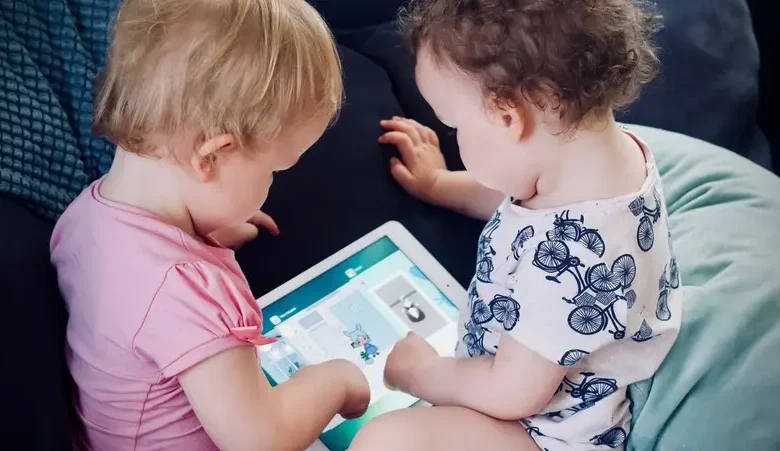Screen time for babies could affect academic performance, wellbeing by age 9: Study

Exposing a baby to screen time too early on could impair the infant’s academic achievement and emotional wellbeing by the age of 9, a new study found.
The study found that allowing infants to use tablets or watch television has been linked to poorer executive functioning once the child reaches the age of 9, according to the study published in the journal JAMA Pediatrics on Monday.
Executive functioning skills are mental processes that enable planning, focusing attention, remembering instructions, and juggling multiple tasks successfully. They influence higher-level cognition such as emotional regulation, learning, academic achievement, and mental health.
They impact success in various areas of life such as socially, academically, professionally and in personal self-care, and play a crucial role in shaping a child’s overall development and future outcomes.
“Though these cognitive processes naturally develop from infancy through adulthood, they are also impacted by the experiences that we have and when we have them in our development,” Dr. Erika Chiappini of the John Hopkins School of Medicine, who was not involved in the study, wrote to CNN in an email.
According to Dr. Joyce Harrison, Associate Professor of Psychiatry and Behavioral Sciences at the Johns Hopkins University School of Medicine, the study’s findings align with the American Academy of Pediatrics’ guidelines, which discourage all screen time for children under 18 months, except for video chatting. Harrison was not a part of the research team.
The research was based on data from the ‘Growing Up in Singapore Towards healthy Outcomes’ (GUSTO) study, which surveyed pregnant women from diverse socioeconomic backgrounds. The sample consisted of 437 children who underwent Electroencephalography (EEG) scans at the ages of 18 months, 1 and 9.
The parents reported the children’s screen time, and the researchers found a correlation between screen time in infancy and attention and executive function at 9 years old, according to the study.
Chiappini also told CNN that young children struggle to learn from devices like tablets and televisions.
However, the study highlights the need for further research to determine whether screen time is the cause of impairments in executive function or if there are other environmental factors that lead to both increased screen time and poor executive functioning in children.










